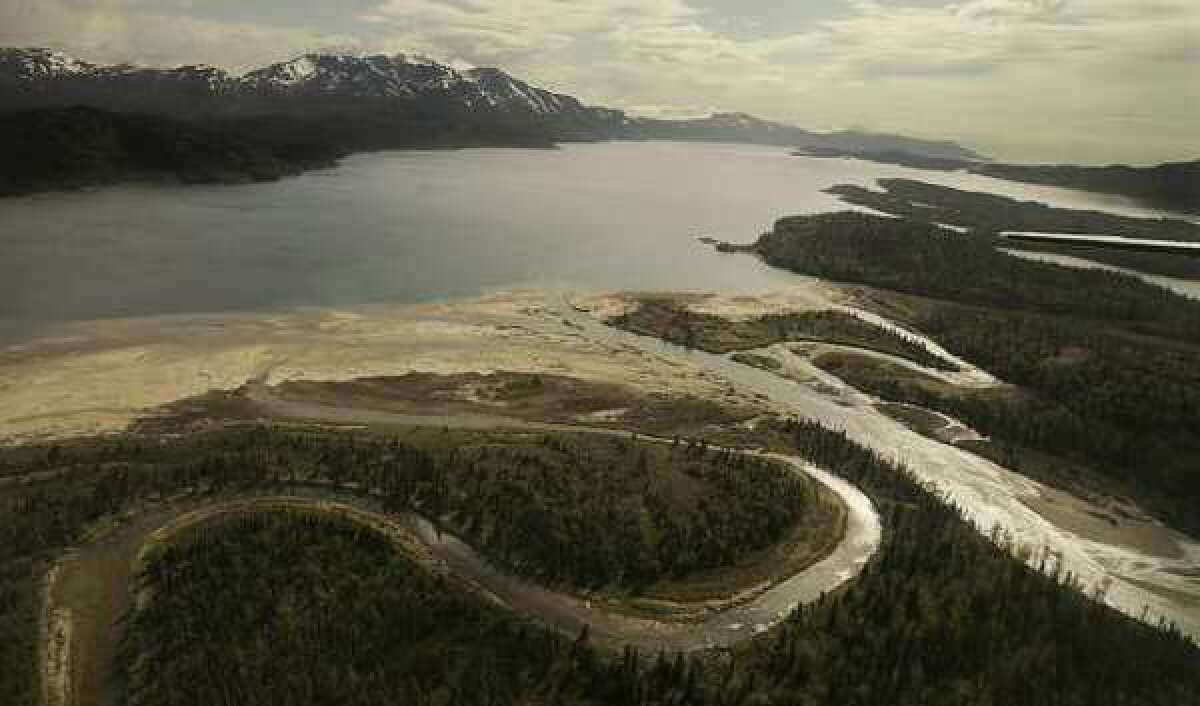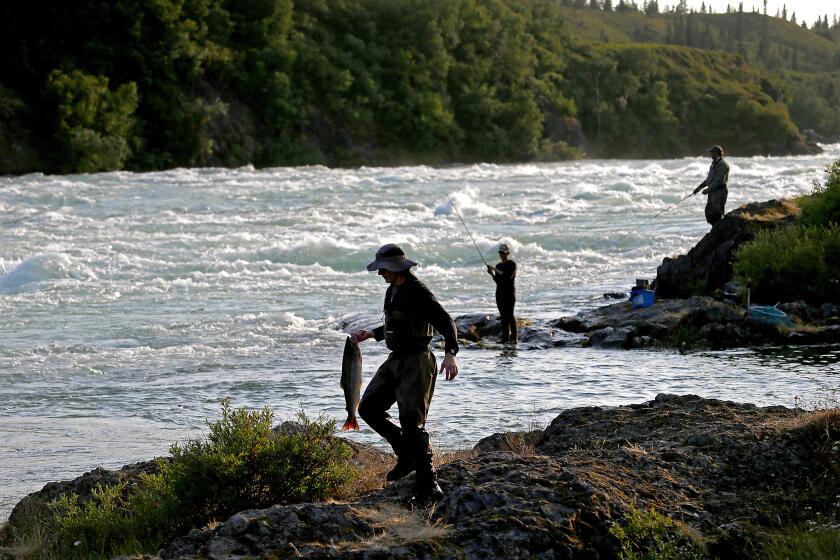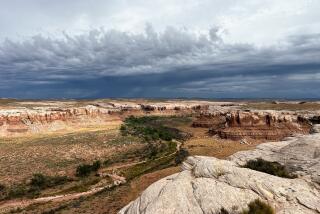Trump administration surprises environmentalists and rejects Pebble Mine

SEATTLE â Eleven days after his fatherâs administration cleared the way for development of a massive copper and gold mine in the wilds of Alaska, Donald Trump Jr. called for it to be stopped.
âThe headwaters of Bristol Bay and the surrounding fishery are too unique and fragile to take any chances,â he tweeted Aug. 4.
On Monday, he got his wish.
Pebble Mine, one of the most controversial development proposals in Alaska history, failed to pass scrutiny by the U.S. Army Corps of Engineers and qualify for a permit under the Clean Water Act.
In a news release, the Army â which oversees the Corps â said that the Trump administration supported the mining industry for its jobs and minerals, but that the project âwould likely result in significant adverse effects on the aquatic system or human environment.â
As proposed, the mine would eventually become an open pit the size of 460 football fields, with tailings heaped on 2,800 acres behind more than 10 miles of dams. Extensive pumping and processing would be required in perpetuity to ensure that tainted drainage water never reaches Bristol Bay, home to the worldâs largest sockeye salmon run.
The mine would âcause unavoidable adverse impactsâ on more than 3,800 acres of wetlands, open waters and streams, David Hobbie, the Corpsâ regulatory chief in Anchorage, wrote in a letter Thursday to the mining company, Pebble Limited Partnership.
Only a month ago, the Army Corps concluded that the mine âwould not be expected to have a measurable effect on fish numbersâ and indicated that it planned to move forward with permitting.
The reversal is an eleventh-hour win for Alaska Native organizations and commercial fishermen in Bristol Bay, where the salmon fishery supports 14,000 jobs and generates $1.5 billion in revenue a year.
Sen. Lisa Murkowski (R-Alaska), who heads the Senate Energy and Natural Resources Committee, said the proposal was finished.
âAfter years of extensive process and scientific study, federal officials have determined the Pebble project, as proposed, does not meet the high bar for large-scale development in Bristol Bay,â she said. âI understand, respect and support this decision. I agree that a permit should not be issued.â
A giant open-pit copper and gold dig above Alaskaâs Bristol Bay could yield sales of more than $20 billion in two decades, but Pebble Mine would place the worldâs greatest wild salmon run at risk forever.
In his letter, Hobbie told the mining company that it could proceed if it instituted âin-kind compensatory mitigationâ nearby in the Koktuli River watershed.
But environmentalists and other opponents of the project said they didnât see how that would be possible.
The Koktuli, a world-class fly-fishing river, is a pristine work of nature that has no degradation possible to mitigate, said Taryn Kiekow Heimer, a senior advocate at the Natural Resources Defense Council.
âItâs untouched up there,â she said. âI donât think that Pebble can come up with any sort of credible mitigation that would meet the requirements of the Clean Water Act.â
Brian Kraft, owner of the Alaska Sportsmanâs Lodge downriver from the site, agreed.
âIt is a perfectly functioning system,â said Kraft, who takes clients up to the branches of the Koktuli, where they fish for rainbow trout, Dolly Varden, Arctic grayling and all five species of Pacific salmon. âThereâs no industrialization or habitat loss. It begs the question of what are you going to do.â
Dennis McLaren, an environment attorney and former senior official at the U.S. Environmental Protection Agency, called the idea of enhancing an undisturbed ecosystem âludicrous.â
McLaren headed the Seattle office of the EPA under the Obama administration when it conducted a three-year, peer-reviewed study of the mining proposal that led to restrictions on the project.
Last year, the EPA said it would not veto the project, leaving the Army Corps to decide whether the proposal complied with the Clean Water Act. The Corps produced a final environmental impact statement July 24 that found the project âwould not be expected to ⌠result in long-term changes to the health of commercial fisheries.â
McLaren said the announcement Monday represented âan extraordinary turnabout.â
The fact that the Army made the announcement was also unusual, given that the Corps has been in charge and handled media relations during its two-year review. Neither responded to interview requests Monday.
In a news release Monday, Pebble Limited Partnership said the Corpsâ letter came as no surprise, adding that it plans to submit a mitigation plan within weeks. Shares in Pebbleâs Canadian parent company, Northern Dynasty Minerals Ltd., dropped 38% in Toronto on Monday.
Tom Collier, Pebbleâs chief executive officer, was quoted in the release as saying the letter âis entirely unrelated to recent tweets about Pebbleâ and âone-sidedâ news shows.
âThe White House had nothing to do with the letter, nor is it the showstopper described by several in the news media,â he said.
President Trump has never publicly endorsed the project, but his support was widely assumed after his administration undid the restrictions put in place under President Obama.
Trump Jr., the presidentâs eldest son, has fished in the Bristol Bay area, and presented himself in his tweet as a sportsman.
Politico reported Saturday that two Trump political donors â metals magnate Andrew Sabin and Johnny Morris, Bass Pro Shopsâ chief executive officer â were pressuring the president to nix the mine.
Environmentalists said the ad-hoc, personality-driven nature of the administrationâs policymaking did not inspire confidence.
Heimer said that opponents want science, not politics, to determine the outcome of the permit decision.
âWhat the Army Corps had been doing so far wasnât science,â she said. âSo if this is an attempt by the Trump administration to halt that faulty process, thatâs welcome.â
More to Read
Sign up for Essential California
The most important California stories and recommendations in your inbox every morning.
You may occasionally receive promotional content from the Los Angeles Times.












